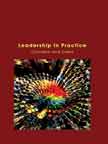BISWA: Fostering Inclusive Growth through Microfinance
|
ICMR HOME | Case Studies Collection
»
Leadership and Entrepreneurship Case Studies 
Custom Search
Please note: |
|||||||||||||||||||||||||||||
Abstract:BISWA, which initially operated as an NGO Microfinance Institution (MFI), also established a Non Banking Financial Company in 2006 to carry forward its microfinance program. As of mid-2010, BISWA had established a presence in 16 states in India and had directly touched the lives of more than four million people who were usually considered non-bankable. Malick planned to establish a presence in nearly all the states of India by the end of 2012 and create one million job opportunities. However, to do this, Malick and his team had to overcome various challenges - challenges such as how to ensure that the poorest of the poor would benefit from their microfinance program; what types of new financial services they should introduce and how to motivate the poor people to adopt these services; how to strike the right balance between expansion and consolidation of the microfinance program; how and from which sources to mobilize funds; and, how to strike the right balance between its social mission and business objectives which were often in conflict with each other. The case has been prepared from primary sources. It has been prepared by conducting in-depth interviews with key personnel at BISWA and some of its stakeholders (clients/beneficiaries). This case has been written to facilitate classroom discussions for MBA/MS-level students as a part of their Entrepreneurship/Social Entrepreneurship curriculum. Additionally, this case study can be used (with a teaching note modified by the instructor for the purpose) in a core strategy curriculum. Issues:The case focuses primarily on social entrepreneurship - issues in managing growth and continuity of a social enterprise, including venture financing. It covers the different aspects of social entrepreneurship, the issues and challenges in the field, and the ethical debate on profit vs. altruism with respect to an MFI, which is considered to be a social business. The case will help the students to: 1) Understand various issues and challenges in managing the growth and continuity of an entrepreneurial venture, especially a social venture; 2) Understand the issues and constraints in financing a venture at various stages of its development, especially a social venture; 3) Understand the working capital problems faced by the poor (especially the rural poor) and see how these problems can be solved through microfinance; 4) Evaluate and analyze the impact of microfinance as a poverty reduction tool; 5) Understand the various issues and challenges faced by MFIs operating in India, and how BISWA overcame these challenges; 6) Study the operating model adopted by BISWA and evaluate whether its microfinance program is sustainable; 7) Understand the various issues and challenges faced by MFIs, especially NGO MFIs such as BISWA, in striking the right balance between their social mission and ensuring financial sustainability of the organization; 8) Explore ways in which the senior management team at BISWA can overcome these challenges. Contents:Keywords:Microfinance, Entrepreneurship, Social entrepreneurship, Venture financing, Ethical debate on profit vs. altruism, Managing the growth and continuity of an entrepreneurial venture, Inclusive growth, Inclusive business models, Business level strategy, Corporate Strategy, Poverty Alleviation, Empowerment, Rural Financing, Self Help Group (SHG)

Custom Search
|
||||||||||||||||||||||||||||||
Case Studies Links:-
Case Studies,
Short Case Studies,
Simplified Case Studies.
Other Case Studies:-
Multimedia Case Studies,
Cases in Other Languages.
Business Reports Link:-
Business Reports.
Books:-
Textbooks,
Work Books,
Case Study Volumes.







